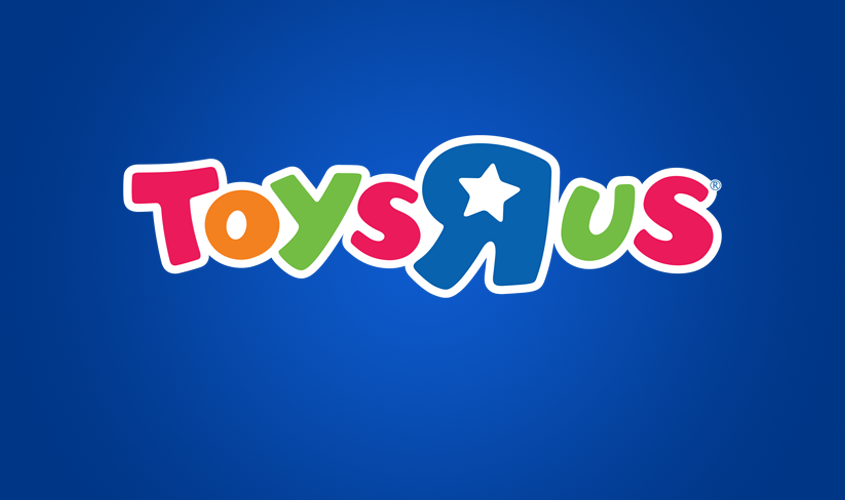Crunching the numbers, The NPD Group’s Juli Lennett analyzes what will likely happen to the toy industry when Toys ‟R” Us closes all its doors in the U.S.
by JULI LENNETT, senior vice president, industry advisor, toys, The NPD Group
The news last week that Toys ‟R” Us will be closing all its stores in the U.S. has been a blow to the toy industry. Employees at Toys ‟R” Us, many of whom we consider our friends, will lose their jobs, and children and parents will lose an experience they so loved, of going to a toy store that had everything under one roof.
What has disheartened me above all is that analysts have been saying the toy industry will decline by 15 to 20 percent in 2018. These numbers defy both math and common sense. Parents that would go to Toys ‟R” Us for a birthday or Christmas gift will not stop buying that gift; they will likely go somewhere else for it. Consumers will not put an end to buying toys because their local Toys ‟R” Us store closed its doors. That just defies logic.
Let me set the record straight, using actual facts and figures, on what will likely happen to the toy industry when Toys ‟R” Us closes all its doors in the U.S.
Toys ‟R” Us represented about 12 percent of U.S. toy industry sales in 2017, according to NPD’s Consumer Tracking Service. Assuming that every single parent that would have purchased a toy from Toys ‟R” Us now decides their child isn’t getting a toy this year because Toys ‟R” Us isn’t there anymore, the worst case scenario is that the toy industry will decline by 12 percent.
Also worthy to note, NPD found that when parents bought a toy last year at Toys‟R”Us, 70 percent of them were purchased for an occasion like a birthday (23 percent) or Christmas (34 percent). The other 30 percent bought a toy for no special reason. In addition, nearly 70 percent of toys purchased at Toys ‟R” Us were purchased because kids asked for the specific toy or brand of toy.
Let’s crunch the numbers a bit more and assume some parents instead choose to buy that toy from another retailer. We can safely assume that parents will continue to buy for occasions like a birthday and Christmas, and we can assume that some parents will still buy presents for no special reason. Let’s apply the 80/20 rule and say that 80 percent of those Toys ‟R” Us parents actually do still buy toys. If this happens—which I argue is the more likely scenario—the organic decline for the total toy industry will be in the low single digits.
Since I have your attention, I’d also like to address the recent conversations that have emerged suggesting the demise of Toys ‟R” Us is due to the “fact” that kids aren’t playing with toys any longer. The fact of the matter is the global toy industry* last year was the largest it has ever been in the history of the industry. In the U.S., the toy industry has grown 4.5 percent on average over the last three years. Does that scream “kids aren’t playing with toys?”
Technology has impacted toy sales, without a doubt, but the industry has a track record of responding and recuperating. When tablets were all the rage, we saw a slowdown in toy sales, but sales have recovered. In 2017, the video game industry had a great Q4 and was likely a contributor to the slowdown of toy sales during that quarter. I expect toys will recover again, as the video game industry also goes through cycles. Let’s remember that kids are not myopic in their “play.” They have the innate ability to enjoy playing with toys, games, and video games as well as watching television, playing sports, sending snaps, and getting good grades. It’s amazing they can do all these things, and it’s important to not lose sight of the fact that each activity holds its own role in their development.
The noise level is rising in light of the Toys ‟R” Us news to the point where much of what we’re seeing in the press is being over exaggerated; and this has to stop. Collectively, we must focus on the facts, and use them to inform our decisions. As an industry, we also have to plan for a successful holiday season, as there will be plenty of amazing new toys to spark our kids’ imaginations.
*Source: The NPD Group/Retail Tracking Service/G11
[author] [author_image timthumb=’off’]https://toybook.com/wp-content/uploads/2018/02/NPD-Juli.png[/author_image] [author_info]Juli Lennett, senior vice president, industry advisor for The NPD Group’s U.S. Toys division, has spent the past 11 years at NPD managing client relationships and consulting to a variety of manufacturers, licensors, and retailers within the toy industry.[/author_info] [/author]
For more information or to speak with Juli Lennett, contact Marissa Guyduy at marissa.guyduy@npd.com or 516-625-2203.

